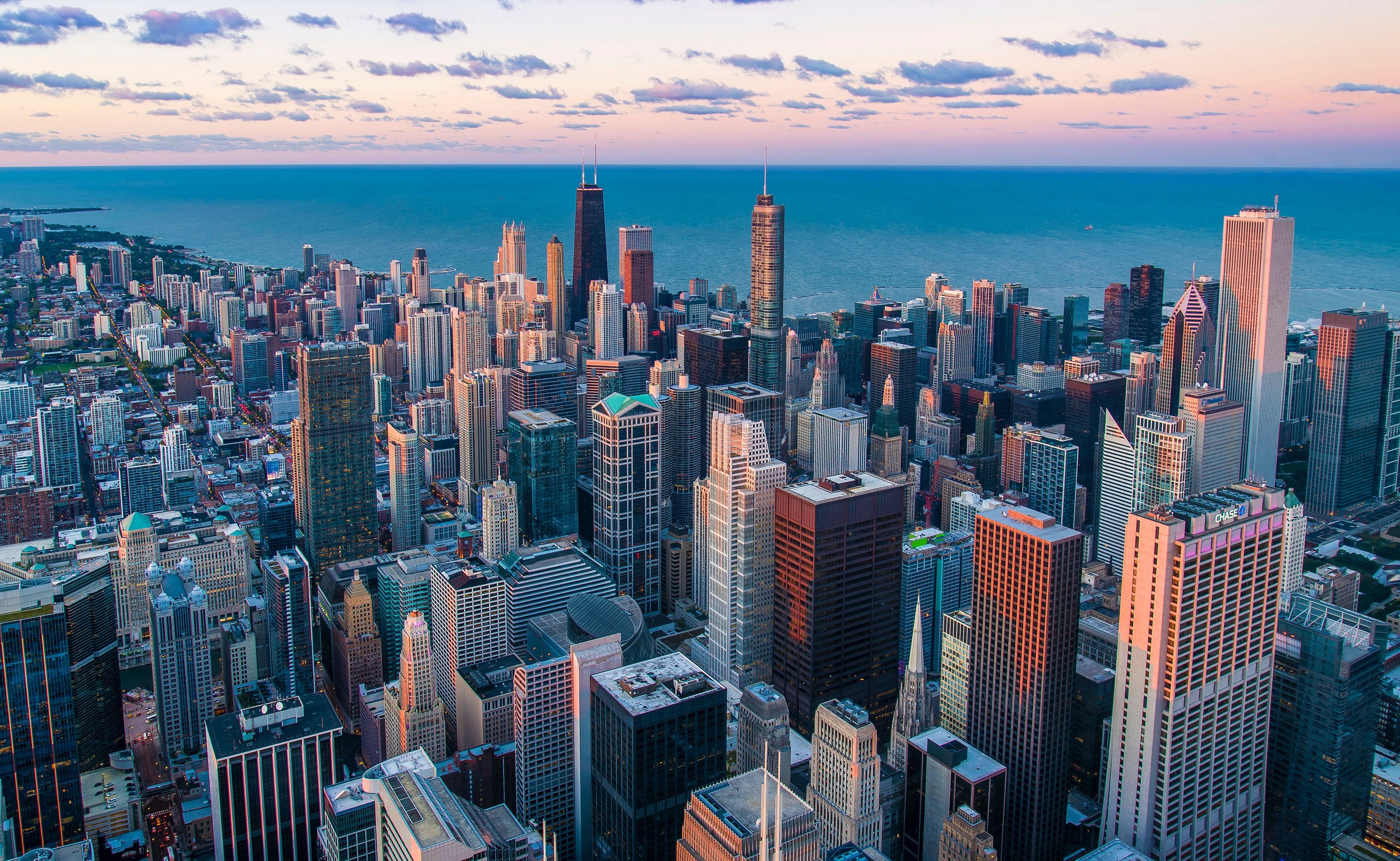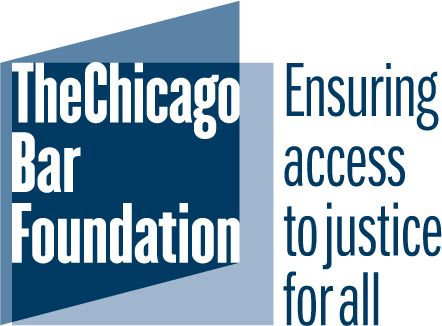Introductory Note: On March 23, 2017, I represented Reuben Taylor before Illinois’ Prisoner Review Board (our version of a parole board). After lengthy discussion, the Board voted 6-8 to deny Mr. Taylor parole.
Emblematic of the feeling of several members of the Board was a statement made by Mr. Johnson explaining his vote. He stated that he had interviewed Mr. Taylor several times, and liked him a lot. There was no question in his mind that Mr. Taylor was ready to be released from prison, and if the Board were to release him, Mr. Johnson would even welcome him into his home. However, Mr. Johnson explained that he was nonetheless going to vote against granting Mr. Taylor parole, because he could not get past the crime he committed.
In the following paragraphs, former UPLC intern Arielle Tolman describes her work on Mr. Taylor’s case and the larger implications of the case. I believe it also helps explain Mr. Johnson’s seemingly inexplicable rationale for voting “No.”- Alan Mills, Executive Director of the Uptown People’s Law Center
----------------------------------------------------------------------------------------------------
Reuben Taylor is 66 years old and has spent the last 43 years of his life behind bars. Each time he is up for parole, the Parole Board expresses concern over one mysterious aspect of Mr. Taylor’s case: his membership in a group of Black Vietnam veterans called “De Mau Mau.” My task was to dig into the available documents, locate witnesses, and develop evidence we can provide to the Prisoner Review Board of the true nature of the De Mau Mau.
I’ve conducted interviews with Black Vietnam veterans in Chicago, with former members of the Illinois Black Panther Party’s De Mau Mau Defense Committee, and with historians who have studied the time period. Mr. Taylor’s life can tell us about the history of racism in America, the violent crackdown on the Black Power movement in the early 1970s, and the potential for a prisoner’s personal transformation—despite being incarcerated in a brutal system designed only for retribution and incapacitation. Mr. Taylor gave permission to share his story to raise awareness about his case and the other “C-Number” prisoners still languishing in cages after decades and decades.
When I had the chance to meet Mr. Taylor in person at Dixon Correctional Center, he looked older than I imagined, but was just as courteous, peaceful, generous and respectful as his petition for parole described him. As he recounted his life story, and I began to comb through all the news articles about De Mau Mau and his case, Mr. Taylor’s release from prison became even more important to me.
Early Life: Racism in Mississippi, Chicago, & Vietnam
Reuben Taylor was born June 5, 1950 in Jackson, Mississippi. At the time, his parents were students at Jackson State University. His mother would go on to become a schoolteacher in Chicago Public Schools, and his father, a supervisor at the post office. Mr. Taylor reflected that he took for granted that he would go to college one day; in his youth, he had little understanding of how unusually successful his family, which included doctors and lawyers, was in a place and time where many Black families in the South subsisted on meager sharecropping income. Mr. Taylor’s parents instilled in him a drive to push for more in life.
Mr. Taylor’s family grew bigger as his parents had three more children. In the hope that they could escape the crippling racism of the deep South, they found a home in the North Lawndale neighborhood of Chicago. Mr. Taylor excelled in school as a young child. He avoided all involvement with gangs, and became a Boy Scout and a proud member of the school’s color guard. However, his success put him in conflict with his surroundings to an extent that even his parents did not totally understand. Carrying his books home from Marshall High School, he became a target of neighborhood gang members. Mr. Taylor was hospitalized after a brick was thrown at his head as he attempted to fend off an armed robbery by the Vice Lords, the gang that controlled his neighborhood at the time. In another incident, he was almost killed when members of the Gypsy Cobras tried to throw him over the expressway overpass. He began to feel emotionally hurt and angry, and that there was nowhere he could turn for help. Nevertheless, Mr. Taylor consciously chose not to turn to violence, and resisted joining a gang for “protection”.
Concerned for his and his brothers’ safety in the neighborhood, Mr. Taylor’s parents sent him and his brothers back to Mississippi to stay with relatives for a number of summers. There, however, Mr. Taylor saw the horrors of the Ku Klux Klan and overt racial segregation firsthand. These experiences—of gangs at home in Chicago and overt racism in the South—made him feel that there was no getting away from violence wherever he went.
When Dr. Martin Luther King died in 1968, his neighborhood went up in flames—destruction which remains evident today in the hundreds of vacant lots throughout Lawndale. He became resigned, concluding there was a good chance he was going to die young: either on the streets of Chicago, or in combat in Vietnam. The war at that point was in full conflict, with the draft scooping up more and more teenagers from poor communities, where residents did not have access to college deferments, or cooperative doctors who would provide a medical exemption.
In 1969, Mr. Taylor enlisted in the Marines. He did so as part of a family tradition: his father and uncles had served in WWII. However, it turned out that the Marines did not provide a refuge from racism. Mr. Taylor discovered that military bases in Vietnam were extremely racist. Confederate Flags proliferated. It was a hostile environment, and there were racial groups formed for self-protection. One of those groups was formed by Black Marines in Vietnam, who took the name “De Mau Mau.”
Mr. Taylor’s experience with the racism that pervaded the military came to a head one day in the chow line. A white fellow Marine was serving roast beef, but only gave Mr. Taylor fat. When Mr. Taylor asked for meat, reaching over to grab it, the server whipped around and slammed a carving knife into Mr. Taylor’s hand. It severed his right middle finger and Mr. Taylor was rushed to the hospital. His finger was reattached, and he went through weeks of physical therapy.
While Mr. Taylor was in his hospital bed in May of 1970, reports of the Jackson State massacre/a> came on his television. Police and National Guardsmen—Mr. Taylor’s military colleagues—fired more than 150 rounds of live ammunition into a group of student protestors at the predominantly Black college. This was the college his parents had attended, where friends and relatives were students, and where his uncle was president of the university. Mr. Taylor began to question why he was in the service fighting for his country when that same military was slaughtering Black Americans back home.
Nevertheless, Mr. Taylor finished his service and was honorably discharged in 1971. He came back to a Chicago that remained a hostile city for young Black people. Shortly after returning from Vietnam, Mr. Taylor was subjected to police brutality: He and his brother, Donald, were attacked by an undercover police officer in an underground CTA station. The melee that ensued ended with him in jail, charged with assaulting an officer. To avoid jail time, Mr. Taylor pled guilty and was sentenced to probation and time served. Mr. Taylor has said that he’s amazed that he survived the incident.
The Crime: De Mau Mau Murders
Mr. Taylor felt directionless. He enrolled at Malcolm X Community College and started to study inhalation therapy. Although he had not joined De Mau Mau in Vietnam, he did in Chicago. The Chicago branch of the De Mau Mau was a loose confederation of about 10-15 Black veterans. The group in Chicago, as in Vietnam, functioned as a fraternity, a way for these men to look out for one another, to foster Black consciousness, and to build a sense of African-American history. The group’s name borrowed from both the anti-colonial Kenyan Mau Mau rebellion as well as from the Vietnam word “di mau,” meaning to go, or leave.
While at Malcolm X, Mr. Taylor was still suffering from PTSD from Vietnam. Battling his residual trauma and faced with a poor employment outlook, Mr. Taylor began to lose interest in his studies. He became more frustrated and bitter about the structural racism he continued to face in America.
On August 5, 1972, Mr. Taylor made a terrible choice that would destroy the lives of four innocent people. With his brother, Don Taylor and two of their friends, Mr. Taylor drove to the affluent Chicago suburb of Barrington Hills. They randomly selected a house to rob, motivated in part by ideologies that white wealth in America was illegitimate, built on centuries of exploitation of Black people. Mr. Taylor earnestly contends that his only intention that night was to steal property; nevertheless, the events spiraled out of control.
When the men knocked on the door, a woman answered and they pointed a gun in her face. They put her and three of the other adult members of the family in the pantry while they began to collect money, watches, and jewelry from the home. At one point, a dog started barking. Mr. Taylor’s brother Donald threw a knife at it, at which point one of the women, Ms. Boand, jumped up and started yelling at them. Mr. Taylor shot her in the chest. Shortly after, Donald and his friends executed the other three members of the family. Mr. Taylor and his co-defendants were arrested in October of that year and ultimately found guilty of the armed robbery and murder of the family. Mr. Taylor was sentenced to 150 years in prison.
The De Mau Mau Murders—Myth vs. Reality
The facts of Mr. Taylor’s case are nothing short of horrific. But other events in Chicago conspired to turn a horrific murder into a full-blown racial panic. On December 4, 1969, the co-chair of the Illinois Black Panther Party, Fred Hampton, was assassinated by the Chicago Police with the cooperation of the State’s Attorney and the FBI. In November, 1972, the Court of Appeals vacated the convictions of the “Chicago 7”—charged with inciting the riots at the 1968 Democratic Convention in Chicago. In 1977, the civil rights case brought by Fred Hampton’s family was dismissed by the District Court in Chicago. This entire period was characterized by massive political and racial upheavals.
Against this background, Mr. Taylor’s case received national news attention. His crime—the armed robbery and murder of a single family—was reframed not as a robbery-gone-wrong but instead as one of a national Black uprising featuring racially- and politically-motivated random killings. In particular, in newspapers at the time, much was made of Mr. Taylor’s and his co-defendants’ membership in De Mau Mau.
Media accounts of the depth of the group’s membership and the nature of the group differed dramatically depending on the source. At the time of Mr. Taylor’s trial, the Defense Department called the De Mau Mau a “small, informally organized group” of Black Marines, mostly in Vietnam. Military authorities in Saigon said that “no trace had been found of any black servicemen participating in any race hate organizations.”
Veterans themselves viewed the De Mau Mau, as a “party or organization;” a “non-violent group which was formed to combat white racism in the military service, particularly in Vietnam.”
In contrast, Chicago Sheriff Richard J. Elrod claimed there was “mounting evidence of a nationwide network of De Mau Mau organizations.” The Cook County State’s Attorney, Edward Hanrahan, characterized the De Mau Mau as a collection of “wanton, coldblooded, racist killers” and as a “black terrorist group.” The law enforcement portrait of De Mau Maus has survived over the years among white supremacist groups, who cite the De Mau Mau murders as “evidence” of racially-motivated Black violence against white people.
The Southside Chicago branch of the NAACP reacted to the Sheriff’s and State’s Attorney’s assertions that murderous Black Americans were “roaming the countryside looking for someone to kill whites at random,” and press coverage of the same ilk, with outrage, arguing that such statements were “totally criminal and irresponsible.” Similarly, at a news conference, the Illinois Black Panther Party defense minister, Bobby Rush, criticized the handling of Mr. Taylor’s case by the “racist mass media” and “lawless law enforcement” who he argued “attempted to convict the members of the Mau Mau even before the ink was dry on [their] charge sheets.”
The Black Panther Party established the De Mau Mau Defense Fund in order to ensure that Mr. Taylor and his co-defendants got a fair trial in light of the vitriolic press coverage of their alleged crimes, and to raise awareness about the racism that Black servicemen faced upon their return from Vietnam. Reverend Jesse Jackson, the president of Operation PUSH, also accused the press and law enforcement of “playing politics with the lives of black people.”
Given these prominent statements by public officials and press accounts of De Mau Mau, despite the significant pushback from Chicago’s Black community leaders, members of the Prisoner Review Board in Mr. Taylor’s case continue to feel confusion and suspicion over Mr. Taylor’s association with the De Mau Maus.
Mr. Taylor’s Prison Record
Mr. Taylor has now been incarcerated for almost 45 years. He is 66 years old. He has repeatedly acknowledged the horrific nature of his crime, and accepted responsibility and his punishment for his involvement. Mr. Taylor deeply regrets having caused senseless destruction and pain to the family. He has worked over the years to develop emotional intelligence and to understand how he ended up committing such a horrible act. Although he does not expect forgiveness from the family, he is genuinely sorry for the pain that he caused. In an unsent letter to the victims’ family, Mr. Taylor wrote: “I emphatically assert that mere words cannot adequately express the heart-felt remorse I feel now, and have felt for many years, at being the instrument of destruction that took the lives of [others].”
Over the four and a half decades of his incarceration, Mr. Taylor has become deeply introspective and a model prisoner. He’s earned a Bachelor’s of Science degrees while in prison, and became a certified optician in 2011. Mr. Taylor has worked in the optical industries in various capacities at Dixon for over 28 years. He’s become fluent in computer programming languages C++, Java, and Python. He taught himself to play tenor saxophone while incarcerated and he now plays in the prison’s jazz and Latin bands. Mr. Taylor practices yoga and meditation to relieve stress. On his behalf, former correctional officers have written to the Parole Board with praise for what a dependable and conscientious worker he is and how supportive they are of his release, as have other community members, former prisoners, and his family. He has arranged ample vocational and housing support in Chicago should he be released.
Black Veterans, White Panic
With Alan Mills and UPLC’s Prisoner Rights Coordinator, Brian Nelson, I pursued a multi-pronged strategy: interviews with Mr. Taylor and other Black Vietnam veterans from Chicago who participated in and/or had knowledge of the De Mau Mau group, as well as former members of the Illinois Black Panther Party’s De Mau Mau Defense Fund committee; reviewed published works and interviewed historians who have studied De Mau Mau. I also submitted FOIA requests to obtain any records on De Mau Mau collected by the FBI, Chicago Police Department, Cook County Sheriff, and Cook County State’s Attorney Office.
This work is ongoing, as it may take over four years to obtain federal government records, but what I’ve found so far has been clear: De Mau Mau was not a terrorist or violent organization. Statements made by the former State’s Attorney Hanrahan and Sheriff Elrod alleging that Mr. Taylor was part of any kind of nationwide terrorist network were politically motivated and untrue. His case garnered widespread press coverage because Mr. Taylor and his co-defendants’ crimes appeared to confirm pre-existing fears that Black veterans were especially prone to violence, and helped to authorize the violent law enforcement crackdown on the Black Power movement.
My interviews with veterans and historians provide support that De Mau Mau was one of several groups established in Vietnam by African-American soldiers to oppose the racism they encountered within the military. Historian Richard Moser, the author of the book, The New Winter Soldiers, found that De Mau Mau, like other groups, was a localized, informal organization that provided mutual support and self-help for Black soldiers. The Black soldiers who joined De Mau Mau were influenced by the Civil Rights Movement, and by the language and politics of the Black Power and Black Pride movements. As such, De Mau Mau was rooted in a shared culture more than it was by any explicit ideology. The decentralized nature of these organizations was typical of many dissident organizations inside the military at the time. This decentralization and informality was a response to the limits on democratic expression imposed by military law and command structures, and provided dissident leaders and members with protection against retaliation.
According to oral history testimony regarding the Marine Corps in the early 1970s, De Mau Mau was formed in part to educate Black people about the laws of the Marine Corps. In Vietnam, De Mau Mau members functioned as informal law librarians for their fellow soldiers. Occasionally, the members were also involved in political protest if a Black soldier faced disciplinary action and there was justifiable doubt about his guilt.
Charlotte Cahill who obtained her PhD in History from Northwestern University several years ago, found in her dissertation research that by 1968, racial tensions in the U.S. military eclipsed government officials’ initial hope that the service of Black troops in the Vietnam War would provide a pathway for racial integration and opportunity. Black G.I.s experienced extensive institutional and individual racism in the military: they were promoted infrequently, often served in especially dangerous roles, and were treated more harshly in military courts. When they returned home, many Black veterans found that their military service had done little to improve their civilian lives: they experienced police brutality and a lack of economic opportunity stateside, problems made worse by persistent stereotypes about Vietnam veterans.
As Black veterans increasingly expressed their dissatisfaction with the inequality even for those who had served their country in the military, some Americans worried that they would respond to injustices with violence. This fear was encouraged by sensational national and local media coverage of Black veterans that conflated discussions of civil rights and Black radicalism with the common stereotype that all Vietnam veterans were unusually inclined to violence.
Press coverage of Mr. Taylor’s case brought together these particular concerns about Black veterans with broader societal concerns about the rise of Black radicalism, and combat-hardened, violent Vietnam veterans who were unable to readjust to civilian life. The fact that the majority of Black Vietnam veterans were peaceful and productive members of American society did little to halt the national panic over the alleged De Mau Mau gang in Chicago.
Cook County Sheriff Richard J. Elrod and State’s Attorney Edward Hanrahan made statements about De Mau Mau that exaggerated the threat it posed to the nation. Importantly, at the same time that Mr. Hanrahan was prosecuting Mr. Taylor’s case in 1972, he was also running for re-election and standing trial for his office’s role in the murder of Fred Hampton. Therefore, because it fit neatly within the larger narrative that Black radicalism was a threat to white Americans, Mr. Hanrahan was in a position to personally and politically benefit from widespread panic over De Mau Mau, and this panic could help legitimize his office’s controversial actions.
Looking Ahead
Although Hanrahan ultimately lost his re-election campaignjust a month after Mr. Taylor’s arrest, the impact of his statements on De Mau Mau continue to be felt. The widespread public coverage of the De Mau Mau myth has created a cloud that continues to hang over the Prisoner Review Board, obscuring its ability to fully comprehend the circumstances of Mr. Taylor’s crime, and to see how remarkable his rehabilitation has been despite the overwhelmingly punitive nature of our penal system.
Working on Mr. Taylor’s case, and the De Mau Mau “mystery” in particular, has led me deep into databases and archives and history books. But revisiting 1972—a tumultuous period in American history where an innocent family lost their lives and Mr. Taylor was imprisoned—has not once felt like anything less than the most-timely and important task. My research has been tremendously eye-opening and it’s been humbling to get to speak to Mr. Taylor. I hope the Parole Board will witness his inner strength and wisdom to overcome the racism he’s faced, his crime, and his lengthy imprisonment to make the most of his life inside. My wish is that Mr. Taylor’s next appearance before the Prisoner Review Board will be his last.















